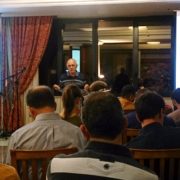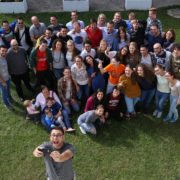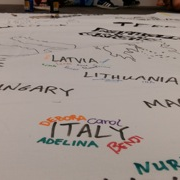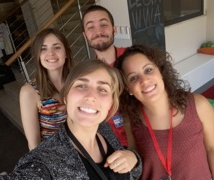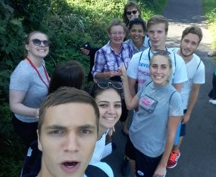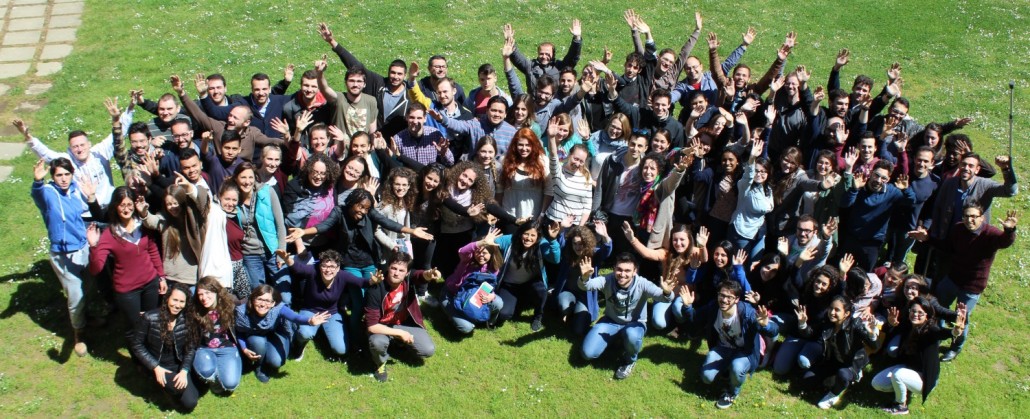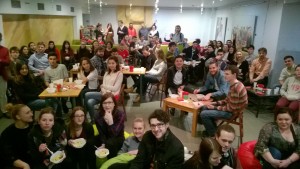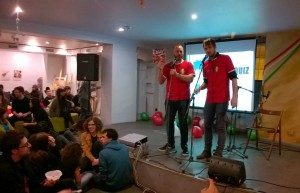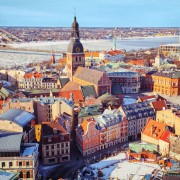I went to the FEUER conference! I might need to explain the name in order for you to understand what it is. The acronym stands for “Fellowship of Evangelists in the Universities in EuRope”, but it’s also, they tell me, a German word which means fire. And I must say that I did catch a bit of that Teutonic atmosphere, which is in referral to the fact that I attended the conference as part of those in an ‘academic track’, i.e. those who work within the University as teacher or those, like me, whose lives revolve around academia. There was quite an earnest atmosphere and at times it was fairly intimidating, mainly due to the German teachers present who often take things very seriously.
I’m kidding of course, but I can’t deny that I did make fun of myself thinking about what kind of impression we gave off to the other participants at the conference, almost as if we were a separate aristocracy whom they could catch a glimpse of while they ate (at separate tables!) or at the after-dinner plenary meetings. What also surprised me was that most of those taking part were men. This was due to the fact that six female teachers were unable to come. The fact is that spending three days from morning to night – including lunch breaks – with men who only talk about the fine tunings of the universe was really hard.
That said, I’m really happy that I participated. The meetings were very thorough and I was able to pick up some very useful tips on how to be a witness in academia and manage occasions when we may be called upon to speak publicly. In particular the presence of someone like John Lennox, who chaired most of the meetings, was a source of great inspiration. He shared his experiences with us and we had the possibility to be an insider and find out how he prepares and manages debates and public lectures.
When you watch him on You-tube it all seems very simple and natural, when in fact his proficiency is the result of many hours of laborious preparation. He also needs to be in constant awareness of showing respect to the other party and acting with a Christian mentality. Speaking personally, there were particularly useful suggestions on how to address and make the best use of your time and to dedicate questions and answers from the audience, which I find is usually a source of great insecurity.
The idea behind this ‘academic track’ was also to create a network among ourselves, in order to advise and help each other, as well as create an environment to process and discuss Christian apologetic issues. I think this is something we still need to work on, but this conference was certainly a good start. Personally, this experience was very useful. It helped me to strengthen my desire to serve the Lord in my professional context, and put myself at the service of GBU in Italy, within the limits of my abilities and my capabilities.
Nicola Berretta

